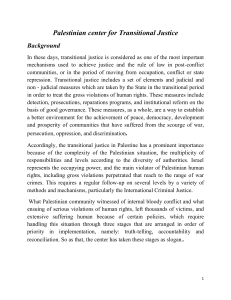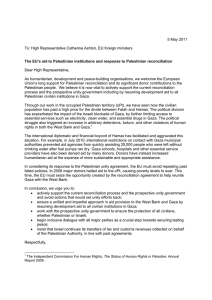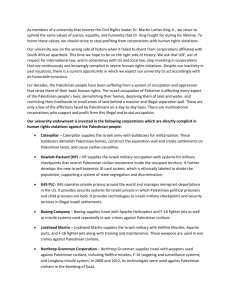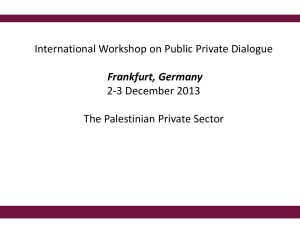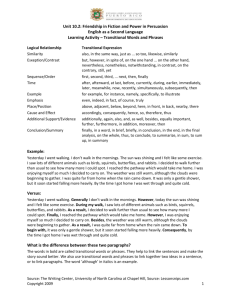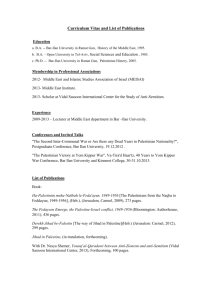Transitional justice is the sole guarantor for Palestinian
advertisement
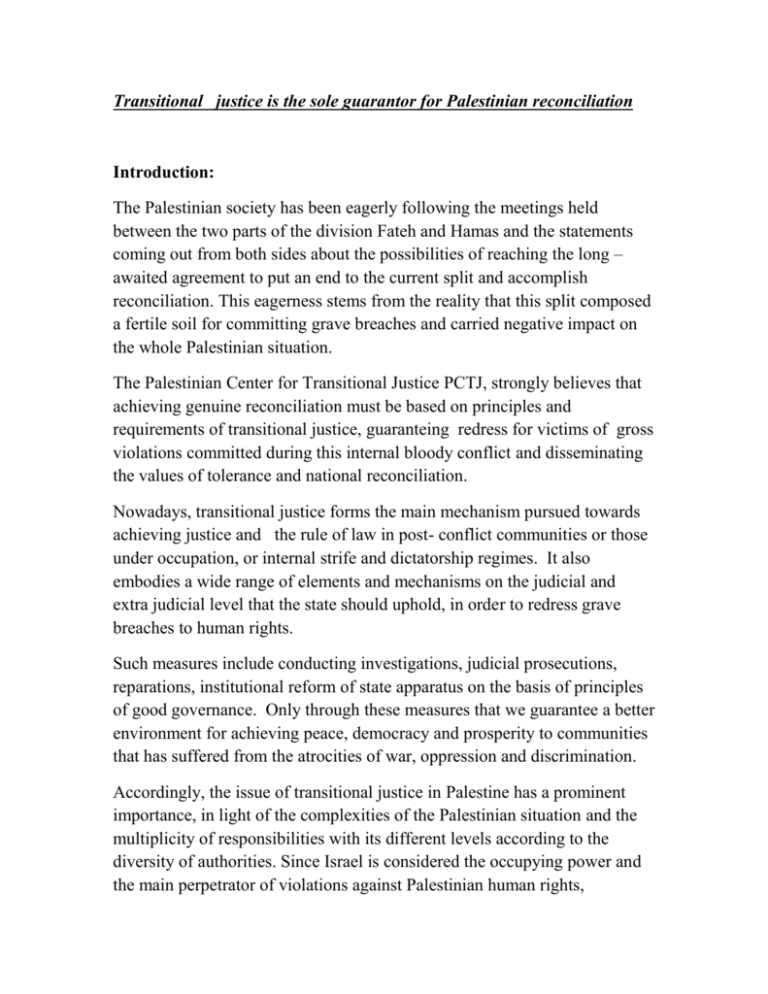
Transitional justice is the sole guarantor for Palestinian reconciliation Introduction: The Palestinian society has been eagerly following the meetings held between the two parts of the division Fateh and Hamas and the statements coming out from both sides about the possibilities of reaching the long – awaited agreement to put an end to the current split and accomplish reconciliation. This eagerness stems from the reality that this split composed a fertile soil for committing grave breaches and carried negative impact on the whole Palestinian situation. The Palestinian Center for Transitional Justice PCTJ, strongly believes that achieving genuine reconciliation must be based on principles and requirements of transitional justice, guaranteing redress for victims of gross violations committed during this internal bloody conflict and disseminating the values of tolerance and national reconciliation. Nowadays, transitional justice forms the main mechanism pursued towards achieving justice and the rule of law in post- conflict communities or those under occupation, or internal strife and dictatorship regimes. It also embodies a wide range of elements and mechanisms on the judicial and extra judicial level that the state should uphold, in order to redress grave breaches to human rights. Such measures include conducting investigations, judicial prosecutions, reparations, institutional reform of state apparatus on the basis of principles of good governance. Only through these measures that we guarantee a better environment for achieving peace, democracy and prosperity to communities that has suffered from the atrocities of war, oppression and discrimination. Accordingly, the issue of transitional justice in Palestine has a prominent importance, in light of the complexities of the Palestinian situation and the multiplicity of responsibilities with its different levels according to the diversity of authorities. Since Israel is considered the occupying power and the main perpetrator of violations against Palestinian human rights, including committing gross violations that amount to war crimes, necessitating a regular follow up on several levels using a variety of measures and mechanisms, among which and mainly addressing the International Criminal Justice. But here, we are highlighting the prospects and requirements for ending this internal division in accordance with transitional justice mechanisms. Background As well known, the establishment of the Palestinian National Authority PNA in 1994 according to Oslo peace accords between Israel, as an occupying power and the Palestinian Liberation Organization PLO, allowed the Palestinians to be in charge of administration of civil and security aspects of daily life in the Occupied Palestinian Territory (the West Bank, including East Jerusalem and Gaza Strip) under the conditions set on the signed agreement. In the course of carrying out its responsibilities, the Palestinian security apparatus and the police committed human rights violations, which ranged from arbitrary arrest to torture and killing in some cases. Following the democratic step which the PNA embarked on by holding free and direct presidential and legislative elections like the last 2006 elections, which resulted in the winning of Hamas for the majority of seats in the legislative council, giving it the right to form the government and appoint its chairman. That was the first time that Hamas has exercised political activity and competing with the main faction of PLO which is Fateh. Such a new reality was confronted with rejection from the international community which considers Hamas as a terrorist organization, leading the donors to cut off financial aid from the PNA which left it on the verge of collapse in light of its inability to manage the daily life of its citizens and ensure salaries for tens of thousands of civil and military personnel. This situation led to a state of aggravation between Fateh and Hamas as each side put the blame on the other, culminating in the escalation of hostilities between both sides towards armed confrontation in the Gaza Strip which led Hamas to take over the rule in the Gaza Strip. In the context of this struggle, both sides committed gross violations of human rights that left thousands of victims and human suffering which necessitated redress through achieving justice. The late meetings and negotiations among the political leaders of both factions concentrated on the issue of putting an end to the division between the two parts at the elite level without taking into consideration the actual suffering of victims and their families. Accordingly, no serious initiative was taken to bring justice to the victims of the division in order to pave the way for reaching a genuine Palestinian reconciliation to put an end to this seven year division. This is the basic context that led to the initiative towards the establishment of the Palestinian Centre for Transitional Justice, aiming to adopt the international standards of transitional justice in Palestine and bringing redress and fairness to victims. Requirements of transitional justice in the Palestinian context In order to address the consequences of the division and reach a genuine reconciliation, PCTJ calls on the Palestinians at the top of the political level and decision makers to ensure the following requirements for transitional justice: First: Appoint an independent, non judicial committee to achieve fairness and reconciliation based on the following tasks: 1- Reveal the truth about the gross violations that were committed since June 2007, and thoroughly investigate all allegations in this regard Organize public-hearing sessions for the victims of violations 2- Ensure reparations and compensations for victims of gross human rights violations carried out during the internal conflict and division 3- Provide health care and rehabilitation for the victims Second Acknowledge the suffering of the victims and ensure public apology for them and for the society in general for all the grave and illegal practices. Third Establish a compensation fund for victims of gross violations Fourth Guarantee accountability of perpetrators of gross violations through prosecution and elimination from public service Fifth Enacting Palestinian laws for transitional justice, which will include the jurisdiction of the reconciliation commission and the compensation fund Finally, PCTJ would like to point to the fact that those countries that abided by transitional justice mechanisms, have witnessed smooth transition towards democracy and civil stability, while other countries who did not incorporate principles of transitional justice are still suffering from internal disturbances and irregularities. Therefore, it is vital for the Palestinian society to adopt and put in practice transitional justice mechanisms to achieve stability, and unify efforts to accomplish redress against Israeli occupation war crimes, in order to build a Palestinian society based on safeguard for human rights, rule of law and democracy. PCTJ would like to iterate its readiness to fully cooperate and coordinate efforts with all official and civil counterparts in the issue of establishing transitional justice and its requirements in Palestine.
